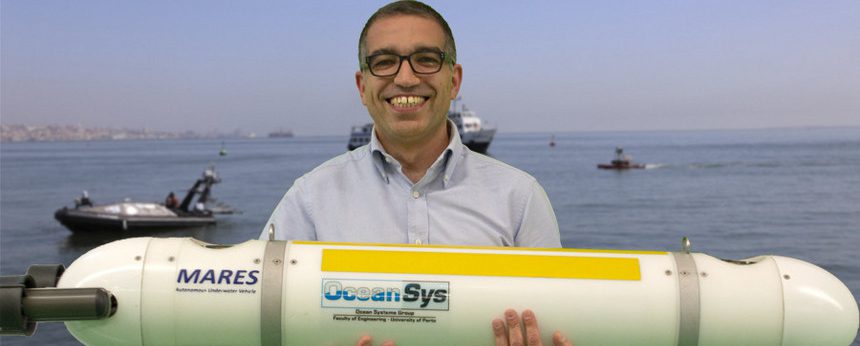A group of INESC TEC researchers is the only Portuguese semifinalist team in the international competition Shell Ocean Discovery XPrize, which features 25 different countries. The purpose of this competition is to develop innovative technological projects, which will make it possible to explore and map the bottom of the ocean, providing solutions to current problems and even new resources to benefit all humanity.
With a duration of three years, this competition is now starting the first trial phase, in which the participants are challenged to prove that their technologies can map 20% of the 500km2 of a delimited area, with a minimum resolution of 5 meters, identifying at least five archeological, biological or geological features, all in 16 hours.
The access to and exploration of the deep sea has been a difficult process with numerous physical, economic and even technological limitations. In that sense, the Shell Ocean Discovery XPrize, with the theme «Getting to the bottom of our ocean», is a competition that challenges teams to push their technologies to the limit, creating solutions that allow progresses on levels such as autonomy, scale, speed, depth and resolution of sea exploration.
The Portuguese team’s approach is called PISCES – Cooperative Robots for Deep Ocean Exploration – and it is based on a combination of different sea robotic platforms to enable an effective and efficient solution for deep sea exploration. These platforms must be operated together and incorporate both an acoustic navigation and a mapping system.
One of the main advantages of this system is its scalability, considering that the autonomy problem is already overcome with the development of new power supply technologies. The outcome of this competition can lead to important progresses in the area, which is also aligned with INESC TEC’s strategy for deep sea exploration.
Led by Nuno Cruz, the team competes now against 20 other research groups. Only ten projects will go on to the next and final phase of the competition. Several INESC TEC researchers from CRAS – Centre for Robotics and Autonomous Systems are involved in this project: Alfredo Martins, André Dias, Andry Pinto, Aníbal Matos, António Silva, Bruno Ferreira, Carlos Gonçalves, Eduardo Silva, Hugo Ferreira, José Almeida, José Alves, José Melo, Nuno Abreu, Nuno Cruz, Rui Almeida and Vítor Pinto.


